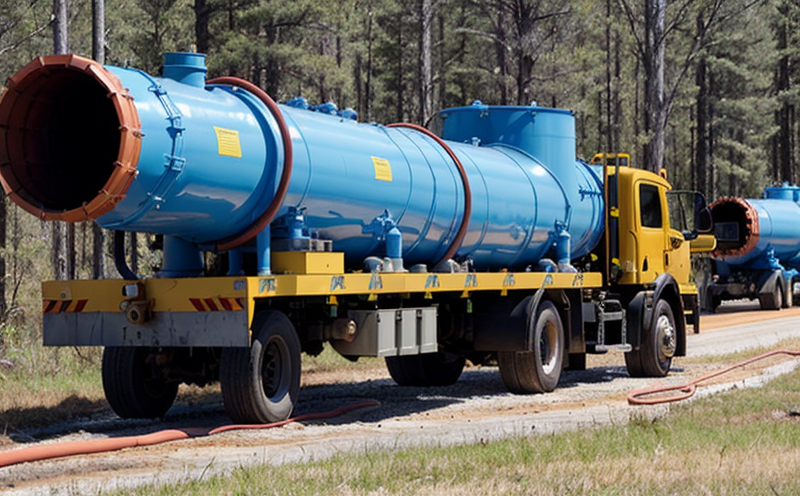ISO 21809 Coating Testing for Gas Pipeline Protection
The integrity of gas pipelines is critical to ensuring safe and reliable natural gas distribution. The ISO 21809 standard provides a comprehensive framework for evaluating the performance of protective coatings used in pipeline systems, particularly those designed to prevent corrosion and degradation caused by soil electrolytes.
Corrosion can lead to structural weakening and ultimately failure of pipelines, resulting in significant economic losses and potential environmental hazards. By adhering to ISO 21809, laboratories ensure that the protective coatings applied meet the highest quality standards and are capable of performing their intended function under field conditions.
The testing process involves a series of rigorous procedures aimed at assessing various properties of the coating such as adhesion strength, flexibility, impact resistance, salt spray resistance, and immersion corrosion resistance. These tests are conducted using controlled laboratory environments that simulate real-world exposure conditions.
Specimen preparation is crucial for accurate test results. Samples typically include sections cut from new or repaired pipelines with protective coatings applied according to specified standards. Prior to testing, the specimens undergo cleaning and conditioning processes to ensure consistency across all samples being tested.
The instrumentation used during ISO 21809 tests includes specialized equipment designed for measuring adhesion strength like pull-off testers, impact resistance via pendulum impact testers, salt spray chambers for evaluating corrosion resistance, and immersion tanks for assessing long-term performance under simulated field conditions. Each piece of equipment plays a vital role in providing reliable data necessary for making informed decisions regarding pipeline protection.
Reporting is an essential aspect of ISO 21809 compliance testing. Detailed reports are generated summarizing all test results, including numerical values and visual representations where applicable. These reports serve multiple purposes; they provide valuable insights into the effectiveness of different coatings for potential buyers or stakeholders involved in selecting appropriate protective measures.
Understanding how these tests contribute to overall pipeline safety is important. Properly applied coatings can extend the lifespan of pipelines, reduce maintenance costs associated with repairs due to corrosion damage, and minimize risks posed by leaks or ruptures which could release harmful substances into the environment or cause explosions if not contained properly.
For those responsible for quality management within power & utilities sectors, ensuring compliance with ISO 21809 is crucial. It helps maintain operational efficiency while also contributing positively to environmental sustainability efforts by preventing pollution from leaks and spills resulting from compromised protective layers over time.
Applied Standards
| Standard Number | Title of Standard | Description |
|---|---|---|
| ISO 1461-2019 | Test Methods for Coatings on Steel and Aluminium Substrates - Part 2: Flexibility Test | This standard describes the procedure for determining the flexibility of coatings, which is important in ensuring that they can withstand physical stresses without cracking or peeling off. |
| ISO 1461-2019 | Test Methods for Coatings on Steel and Aluminium Substrates - Part 3: Adhesion Strength Test by Pull-off Method | This part specifies the method of testing adhesion strength using a pull-off tester. This test ensures that the coating remains intact even when subjected to forces attempting to detach it. |
Customer Impact and Satisfaction
- Enhanced safety for residents living near gas pipelines due to reduced risk of leaks and explosions.
- Increased operational efficiency by minimizing downtime caused by unexpected failures or maintenance issues related to coating deterioration.
- Improved reputation among stakeholders through consistent adherence to international standards, thereby building trust in the reliability of natural gas distribution services.
Environmental and Sustainability Contributions
- Reduction in greenhouse gas emissions by preventing leaks that could otherwise release methane into the atmosphere during transmission or storage processes.
- Decreased demand for new pipeline construction through extended lifespan of existing infrastructure, thus conserving resources used in building and maintaining pipelines.





